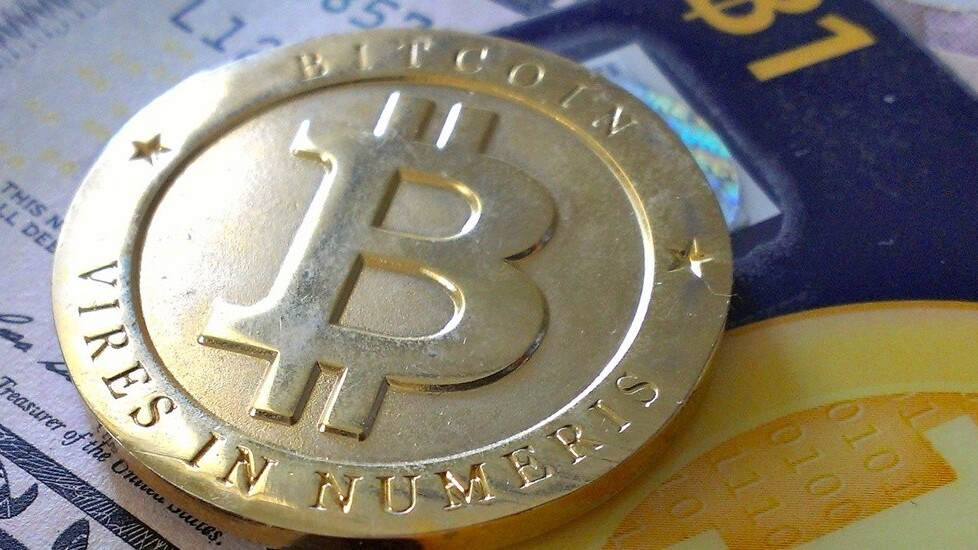
Garrett Heath is a technology storyteller with Rackspace.
The meteoric rise of Bitcoin’s value—from a low of $13 to upwards of $1000 in 2013—caused the general public to take notice of this cryptocurrency. Once relegated to tech circles, last year saw major economists discussing the digital currency, international governments questioning its legitimacy and speculation on well-known hedge funds acquiring it in their portfolios. Last year was truly the coming out party for Bitcoin.
But is the time right for businesses and e-commerce sites to begin accepting it as a method of payment?
“We see a range of emotions towards Bitcoin adoption in the retail industry. Some retailers believe that they are just merchants and ready to support any mode of transaction for selling goods,” Mahesh Gandhe, Product Marketing Manager for Rackspace Digital says. “On the other side of the spectrum, some are skeptical and really want federal agencies to regulate Bitcoin before considering its adoption.”
In deciding whether it’s time to adopt Bitcoin as a method of payment, below are some points that online retailers should consider.
Playing with house money
Investors who’ve been lucky enough to hold onto to their Bitcoin from the early days are suddenly seeing real, tangible worth. As the Bitcoin value has moved from pennies to hundreds of dollars, many of the original owners have come into a windfall.
In essence, there’s a feeling of playing with found money—similar to how gamblers on a winning streak in Vegas might spend big with house money in their pockets.
In addition to their recently acquired wealth, many early owners are passionate about Bitcoin becoming a mainstream currency. This could mean a boon for e-commerce sites that are early adopters of Bitcoin.
Overstock.com’s recent adoption of Bitcoin is a case in point. In less than a full day of accepting Bitcoin, Patrick Byrne, CEO of Overstock.com, tweeted that the company received over 780 orders totaling over $124,000 in sales. Providing an outlet for passionate users to spend their newfound wealth could carry many benefits for merchants that are early to the Bitcoin party.
Free publicity
Because we are in the early days of retailers accepting cryptocurrency, there is a significant amount of potential media coverage for businesses that opt in. Roger Wu, cofounder of Cooperatize.com, began accepting Bitcoin for his business. In a recent Forbes article, he notes, “The newness and risk associated with accepting Bitcoins will give you an initial PR pop.”
Online dating site OKCupid was one of the first major businesses to accept Bitcoin in April 2013. While the sales haven’t been huge (about 1,000 people have paid with the currency), the company did cash in on the publicity from many articles circulated about them on the Web.
Certainly, news coverage will begin to wane as more companies begin to accept Bitcoin, but there is still the opportunity to capture some media exposure in the near term.
Volatility of Bitcoin value
Because the current value of Bitcoin is highly volatile, companies accepting Bitcoins and not immediately transferring them into local currency incur the risk—and possible reward—of this volatility.
Furthermore, there could be a possibility of what is called the Bitcoin Crack, a condition that Gary Le Masson covers in detail on PrestaShop. Essentially, it entails a significant drop in the price of Bitcoin—say 100-fold—over the course of a day and the subsequent “buying up” of physical goods.
Rather than exchanging their devalued Bitcoin for USD, users will look to spend the digital currency very quickly on tangible goods, potentially in your online store. By not updating your associated Bitcoin price in real time, as an e-commerce merchant you could receive a flood of orders paid for by a devalued currency.
Securing the currency
As with all things digital, Bitcoin owners have to take certain precautions with their digital assets. While there are many security precautions in place for Bitcoin wallets, one of the best practices is to keep the majority of the money in an offline, encrypted wallet.
As Bitcoin.org advises, a “Bitcoin wallet is like a wallet with cash. If you wouldn’t keep a thousand dollars in your pocket, you might want to have the same consideration for your Bitcoin wallet.”
If you utilize an offline storage strategy, it is imperative to backup your wallet and to make multiple copies. Just as a digital photo can be lost if the hard drive becomes corrupted, your wallet could be lost if a hardware failure occurs. Having multiple copies of an offline wallet is key to protecting your assets.
Mitigating volatility and security
To help mitigate some of this volatility and security concerns, there are tools and platforms that are available for online merchants. Coinbase, for example, is a platform designed to make accepting Bitcoin easier for merchants. Instead of being subjected to volatility, merchants can specify the price of their good or service in their local currency.
Coinbase then facilitates the Bitcoin transactions for the items and deposits the total amount of sales at the end of a day—less a fee not to exceed 1 percent—into the merchants account.
“You [could] price a toaster for $30, it pulls the correct amount of Bitcoin in the background and then it can instantly convert that Bitcoin payment back into dollars,” Fred Ehrsam, co-founder of Coinbase said at a SXSW panel. “There’s no exchange rate risk for them, it just looks like one more payment option that’s quicker, it’s cheaper and it happens to be universal.”
Furthermore, by converting Bitcoin from the day’s sales into the local currency, online merchants don’t have to be concerned with the security and redundancy of a Bitcoin wallet.
However, merchants should perform their due diligence when choosing a third party platform. At the end of February, popular exchange Mt. Gox went offline after an estimated 744,408 Bitcoins went missing. The unregulated nature of Bitcoin can cut both ways, so it is important to critically evaluate each exchange and platform when planning to conduct business using Bitcoin.
Future currency or financial architecture?
While Bitcoin may still be a niche currency, there’s momentum towards more widespread adoption. With this momentum, the future of Bitcoin seems to be heading down one of two roads. First, it has the opportunity to become a mainstream currency, where the general public actually buys, sells and holds an amount of Bitcoin without constantly exchanging it back into a local currency.
The second path is where Bitcoin becomes a protocol for the exchange of money online, where businesses like Coinbase help exchange money between buyer and seller at a fee less than the typical 2.5 percent seen today. Regardless of whether they accept Bitcoin in their stores today, it is in the best interest for e-commerce and online merchants to continue to watch the evolution of this trend.
Get the TNW newsletter
Get the most important tech news in your inbox each week.





